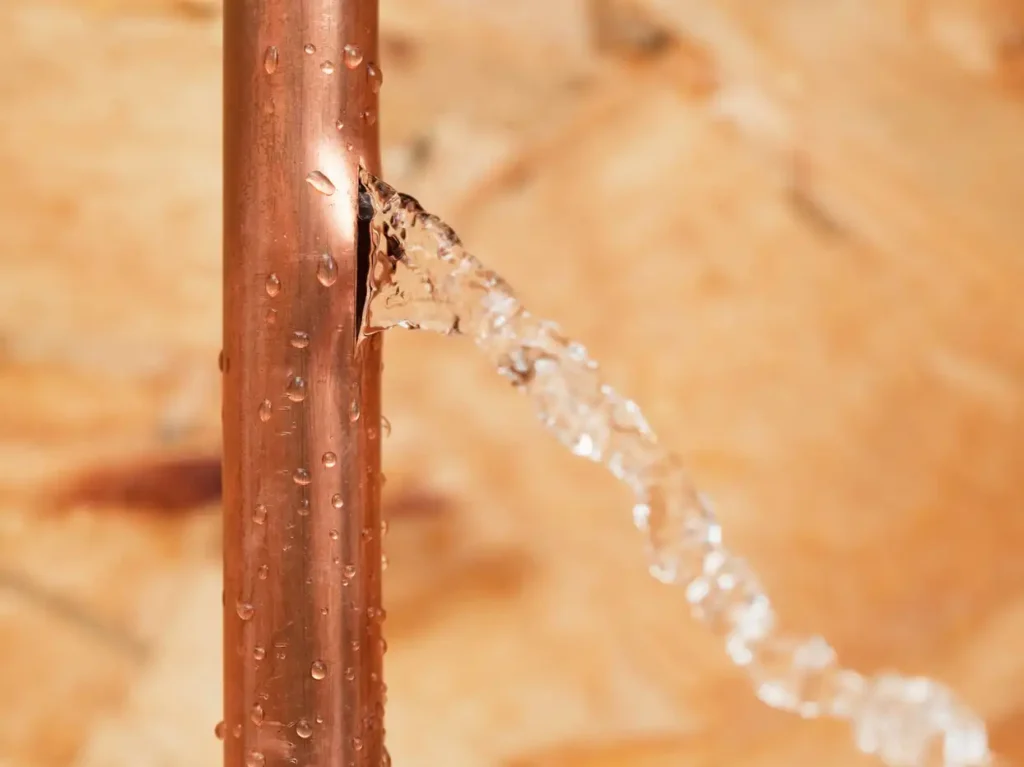Changing seasons in New Jersey can put a lot of pressure on your basement walls and foundation, leading to water intrusion.
From heavy rains in the spring to rapid freeze-thaw cycles in the winter, all it takes is one bad storm to flood your basement and destroy your valuables.
Burst pipes, which are all too common during the bitter winters in New Jersey, may also lead to water buildup in your basement that will be difficult to remove without a proper sump pump.
While professional waterproofing services are the best solution to keep your basement dry, you can aid in these efforts and reduce your risk of water exposure by following a few seasonal housekeeping tips.
Follow these eight seasonal DIY basement waterproofing tips to keep your basement dry year-round.
There are several types of basement waterproofing products, including interior and exterior, each with unique advantages and disadvantages.
In this blog post, we’ll explore the different types of basement waterproofing systems and help you decide which one is right for your home.

Spring showers can easily overwhelm your home’s drainage system. Begin the season by clearing out any debris, leaves, or twigs from your gutters. Ensure that your downspouts are free-flowing and extend at least 4–6 feet away from your home. This will help divert water away from the foundation, reducing the chance of seepage into your basement.
Hairline cracks may appear in your foundation walls or floor as the ground thaws. Conduct a thorough inspection of your basement walls, corners, and floor for any signs of water stains, efflorescence (white mineral deposits), or small leaks. Use a masonry sealant to patch minor cracks, but be sure to monitor them—a waterproofing professional should review larger or persistent issues.
Summer can bring high humidity, especially in basements that lack ventilation. Invest in a hygrometer to monitor humidity levels; ideally, keep it below 50%. Running a dehumidifier can dramatically reduce the risk of mold, mildew, and musty odors. Also, make sure your basement windows are sealed properly to prevent warm, humid air from entering.
The sump pump is your basement’s first line of defense during summer storms. Test it monthly by pouring a bucket of water into the pit. Ensure it activates and discharges water as intended.
Clean the sump pit and check that the discharge line is free from clogs or blockages. Consider investing in a battery backup in case of a power outage during a storm.
Fallen leaves can cause major drainage issues if left unmanaged. Rake leaves away from your home’s foundation and routinely clean out gutters and downspouts to prevent clogs. This ensures that fall rains are directed safely away from your home, minimizing water pressure on your foundation walls.
Fluctuating fall temperatures can expand and contract your home’s foundation, worsening existing cracks. Walk around your home’s interior and exterior, looking for gaps around windows, doors, utility penetrations, and the foundation. Use caulk or hydraulic cement to seal these problem areas before winter weather sets in.
Water damage in the winter often stems from burst pipes. Wrap exposed pipes with foam insulation sleeves or heat tape, especially in unheated basement parts. Keep the basement temperature above freezing and let faucets drip slightly during extreme cold snaps to prevent pressure buildup.
When snow and ice begin to melt, all that water needs somewhere to go. Shovel snow away from your home’s perimeter and ensure your yard is graded to slope away from the foundation. Downspout extensions should be rechecked to make sure they’re not frozen or blocked by snowdrifts.
While seasonal maintenance and DIY fixes can help reduce the risk of water damage, they often only address surface-level symptoms. Professional waterproofing provides a more permanent, comprehensive solution, designed to protect your basement from the inside out, no matter the season.
Here’s why many homeowners in New Jersey choose to invest in professional waterproofing services from United Waterproofing:
Professionally installed systems, such as French drains, sump pumps, and vapor barriers, offer durable, long-term defense against water entering your basement. These solutions are designed to handle heavy rain, snowmelt, and groundwater pressure far more effectively than temporary fixes.
Water problems aren’t always obvious. Our trained technicians conduct thorough inspections to uncover the root causes of dampness, mold growth, and structural vulnerabilities. Whether it's poor exterior drainage or hydrostatic pressure, we tailor solutions to address the root problem.
A dry, usable basement adds value to your home and gives peace of mind to potential buyers. Professional waterproofing not only protects your investment, it enhances it. Finished basements, in particular, benefit from having documented moisture control in place.
Excess basement moisture often leads to mold growth, damaging materials and negatively affecting indoor air quality. Our systems help maintain dry conditions that prevent mold from forming in the first place, keeping your home healthier and your repairs minimal.
You should inspect your basement at least once per season. Look for new cracks, discoloration, or musty smells, and test your sump pump regularly.
Start by identifying the source—check for leaks, poor drainage, or high humidity. Use a dehumidifier, seal cracks, and ensure water is draining away from your home. If dampness persists, a waterproofing expert can offer a long-term solution.
Typically, standard policies do not cover flooding or water seepage. Check your policy or talk to your provider about adding flood coverage if you live in a high-risk area.